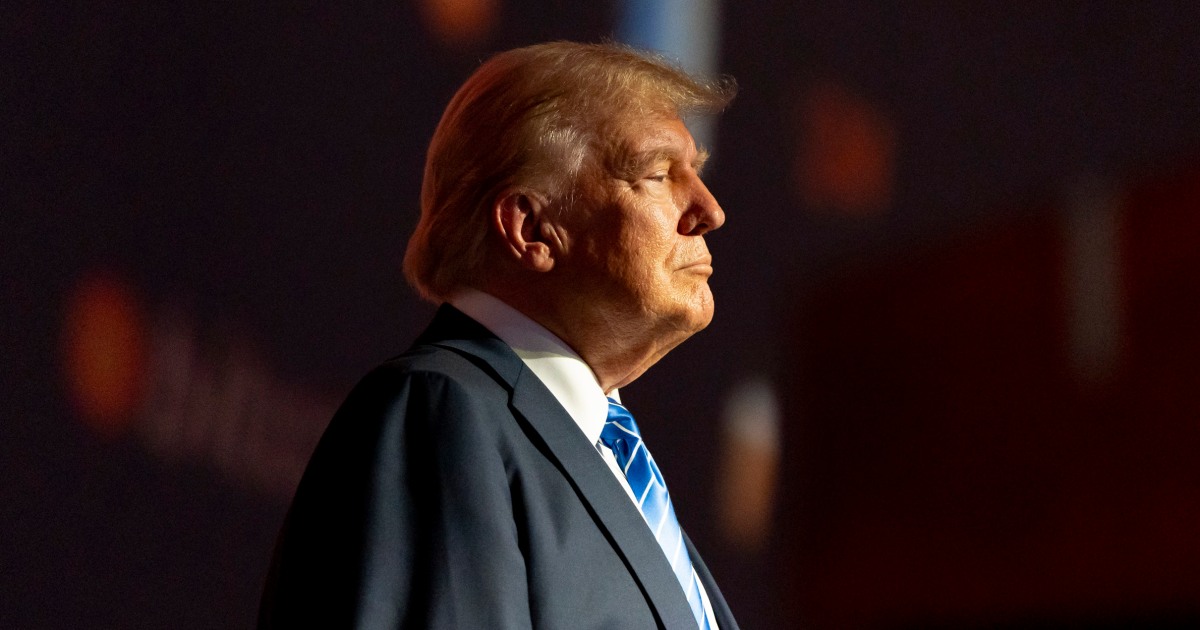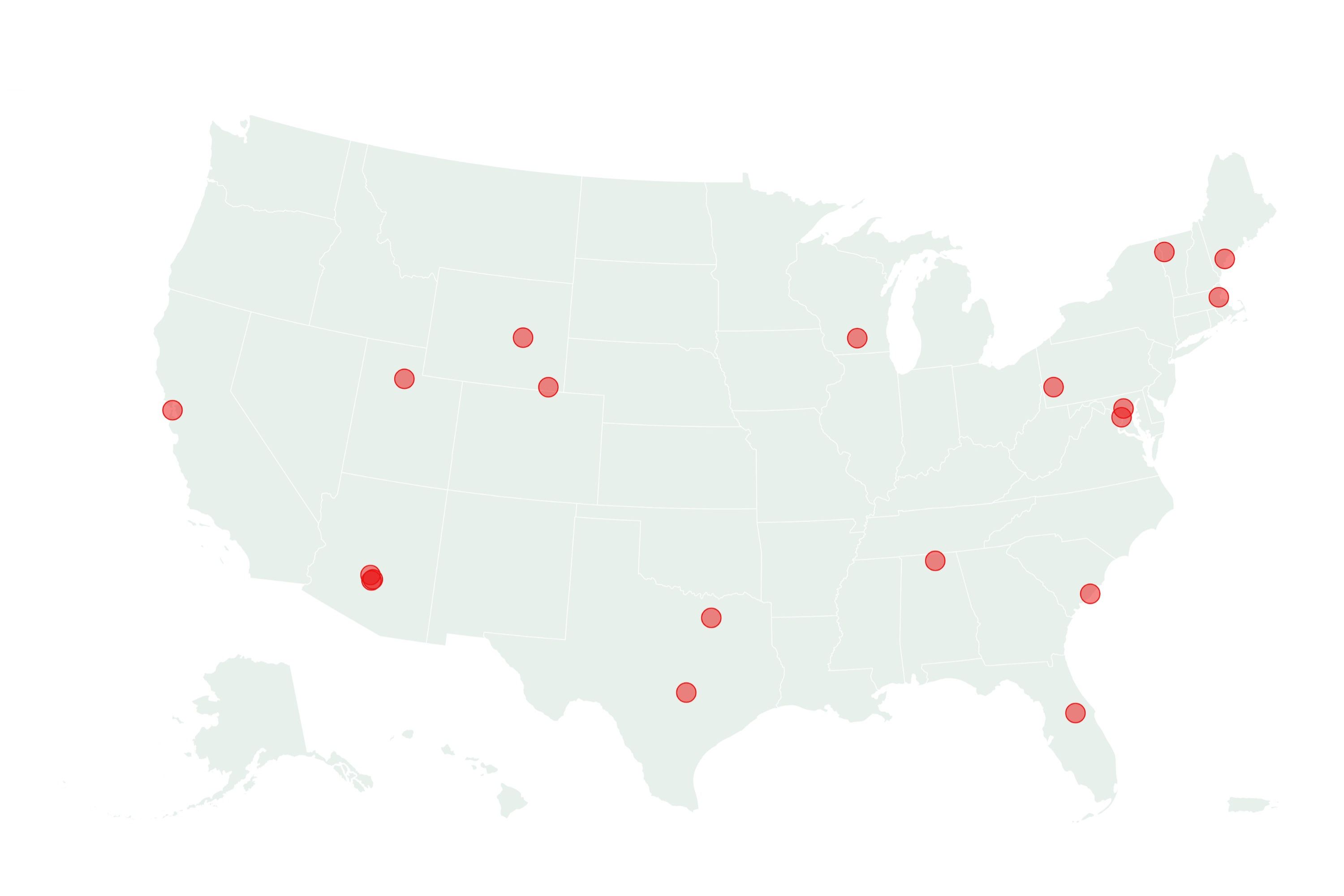Tech
U.S. intelligence official: Russia will likely use propaganda to support Trump over Harris

The U.S. intelligence community believes the Kremlin will direct its propaganda efforts to support former President Donald Trump over Vice President Kamala Harris in the presidential election, an intelligence official indicated on a media call Monday.
Iran is likely to continue to try to denigrate Trump, the official said, and China doesn’t appear to have a preference in the presidential race but may try to interfere in congressional races.
The call, held by the Foreign Malign Influence Center, one of the few arms of the U.S. government devoted to countering foreign propaganda campaigns, elaborated on an agency alert about foreign propaganda campaigns released Monday afternoon.
The official’s remarks were the clearest sign yet that the U.S. believes Trump remains Russia’s preferred candidate even after President Joe Biden dropped out of the race and Harris became the presumptive Democratic nominee.
A spokesperson for Russia’s Ministry of Foreign Affairs didn’t respond to an email requesting comment. A spokesperson for the Chinese Foreign Ministry said at a regular briefing in Beijing on Tuesday that “China has never interfered, nor will it interfere, in U.S. elections.”
A spokesman for the Iranian mission to the United Nations in New York said in a statement to The Wall Street Journal: “Iran does not engage in any objectives or activities intended to influence the U.S. election,” adding that the accusations are “psychological operations designed to artificially pep up election campaigns.”
The Foreign Malign Influence Center is nestled under the Office of the Director of National Intelligence, the main clearinghouse for information gathered by U.S. intelligence services.
The intelligence director’s office previously concluded that Russian President Vladimir Putin authorized a widespread propaganda operation that was aimed at “denigrating President Biden’s candidacy and the Democratic Party” and “supporting former President Trump” in the 2020 election. Russia had devoted its election interference almost entirely from cyber operations in 2016 to propaganda in 2020, the report found.
The 2020 report found that Iran conducted an influence campaign to undercut Trump’s candidacy, authorized by its supreme leader, Ayatollah Ali Khamenei. The operation didn’t go so far as to support Biden or other rivals, it said. U.S. officials alleged that an Iranian operation sent threatening emails to Democratic voters in Florida before the 2020 election, posing as members of the far-right Proud Boys, to inflame partisan tensions.
The agency has avoided naming Trump, Harris or any other specific Americans running in the current election in its comments. But in another call this month, when Biden was still the presumptive Democratic nominee, officials of the intelligence director’s office said that Russia remained the primary foreign threat to U.S. elections and that their candidate preferences were the same as in 2020.
On Monday, officials said Iran’s and Russia’s partisan presidential preferences hadn’t changed as they continued to launch online information operations this year.
The agency’s public alert Monday afternoon said that Russia is “the predominant threat to U.S. elections” and that “Russian influence actors have undertaken distinct efforts during this election cycle to build and use networks of U.S. and other Western personalities to create and disseminate Russian-friendly narratives.”
The Kremlin’s driving issue in the U.S. election is to end U.S. aid to Ukraine, the official said on the call, an issue on which the Trump and Harris tickets vary widely.
“Russia’s core interest in this election is opposing candidates who want to offer further aid to Kyiv, and we expect Russia’s focus will remain on that,” the official said.
Officials on the call provided few specifics, saying much of their report comes from classified sources.
The U.S. has been Ukraine’s biggest benefactor by far since Russia invaded in 2022. The U.S. gives more aid to Ukraine than to any other country, and Ukraine gets the vast majority of its foreign military funding from the U.S.
As vice president, Harris has repeatedly met with Ukrainian President Volodymyr Zelenskyy, and the Biden administration has given the country an estimated $53.7 billion in military aid, according to the State Department.
Trump, by contrast, hasn’t pledged to continue major aid to Ukraine. Some of his former officials have publicly proposed a peace plan that includes significant concessions from the country. Trump’s running mate, Sen. JD Vance of Ohio, has repeatedly criticized U.S. military aid to allies in general and has said, “I don’t really care what happens to Ukraine one way or another.”
Iran’s opposition to Trump comes from its desire not to have further inflamed tensions with the U.S., the officials said.
In 2020, the Trump administration authorized a drone strike against a key Iranian military leader, Qassem Soleimani.
The Secret Service increased security around Trump in recent weeks in light of an Iranian assassination attempt against him, U.S. officials have told NBC News. That attempt was unrelated to the Pennsylvania gunman who did manage to shoot Trump at a rally this month.
Officials of the intelligence director’s office on the call said much of Russia’s online propaganda comes through a series of third-party companies that pose as marketing firms. They pointed to an incident in March, when the Treasury Department sanctioned two such companies it accused of operating dozens of fake news websites aimed mostly at Western readers and creating armies of fake social media accounts to promote them.
It remains unclear how much reach those accounts have or how effective they are in influencing opinion. Meta announced last year that it had taken those networks down from its platform. It said the networks had spent around $105,000 in ads.
Some critics have argued that the U.S. government has at times overstated the threat of foreign propaganda.
“Without anything more granular about specific threats at an unclassified level, the government is going to have to carefully avoid creating a sense of vague dread about foreign interference,” said Gavin Wilde, a senior fellow at the Carnegie Endowment for International Peace. “If it’s primarily substantiated by the ill intent of adversaries, that’s a bottomless well to draw from.”
UPDATE (Tuesday, July 30, 3:45 a.m. ET): Reporting pertaining to statements made about Iran and China was added to this article.









